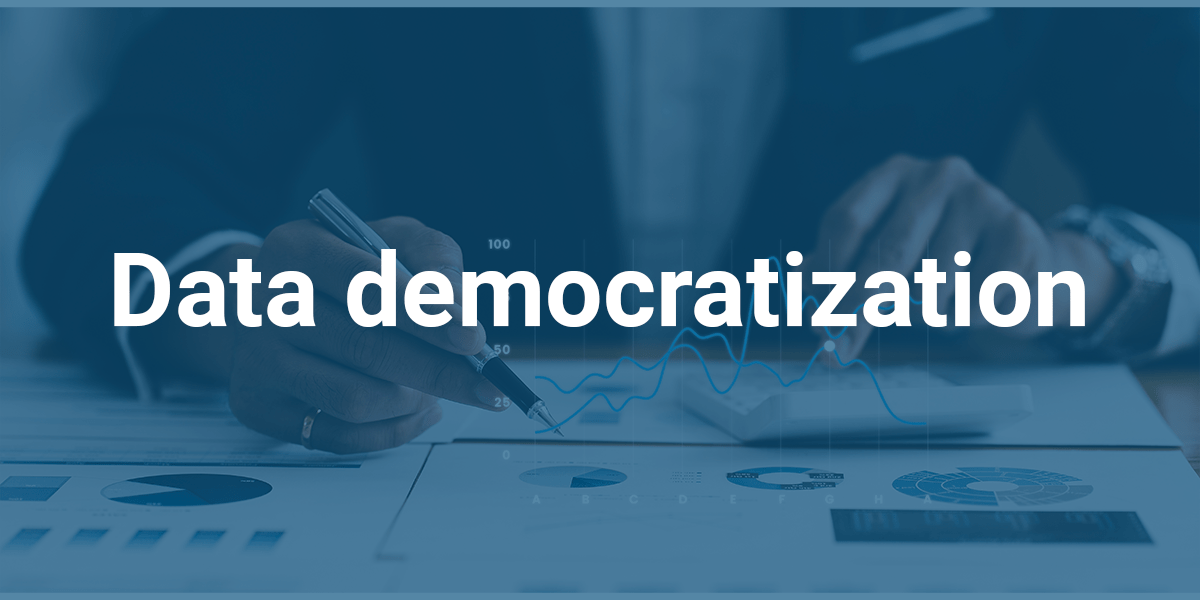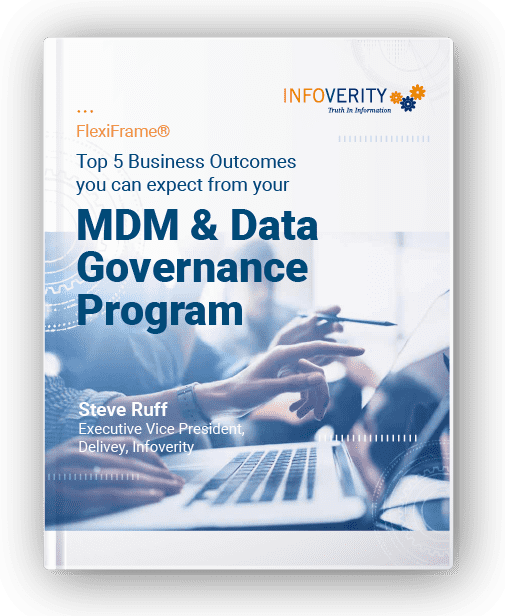Data for All: How Data Democratization Can Lead to Data-Driven Decision-Making
Research shows that companies are only able to leverage 50% of structured data when making business decisions. And to get there, 80% of analysts’ time is spent on retrieving, cleaning, and preparing data coming from disparate tools, standards, channels, and processes.
By democratizing data and centralizing it, organizations can enable everyone to work with data, regardless of their technical know-how. By doing so, they can derive the necessary business insights for making quick and informed business decisions.
In this article, we’ll talk about why data democratization matters and its connection to data governance and data literacy.
Data democratization: Table of Contents
The Importance of Data Democratization
For data to be leveraged to its full potential, employees should have access to one, safe source. Without silos and inefficient processes, companies will have shared data ownership and responsibilities.
The democratization of data is demonstrated when a company shares its entire product catalog with its entire workforce. Solutions like Infoverity’s Product Portal, which provides a cost-effective global view of the product information management system (PIM), can assist in making this a reality.
With this new level of transparency, marketing teams can accelerate the time-to-market for new products and sales teams can access real-time product availability information to efficiently match the right products with the right customers. These efforts can significantly improve customer satisfaction and sales performance.
Let’s take a closer look at how data democratization can help companies innovate and succeed by providing:
- Comprehensible Insights: Data becomes readily available to all employees within the organization, giving them access to timely information to make informed decisions.
Ex: Sales teams can look into real-time customer-purchase data to improve their pitches to bolster profits and deepen customer relationships. - Employee Development and Growth: Developing more confidence in their ability to analyze data independently improves engagement, strategic planning, and proactive problem-solving.
Ex: Product managers can drive feature development by using analytics tools to identify user-behavior trends, instead of waiting for data reports from specialized teams. - Collaborative Environment: Data democratization does create more capable teams and employees; however, it also establishes a common data platform that connects all departments. With a shared view of data, cross-functional project teams can develop and execute coordinated strategies for effective project management.
Ex: When launching a new product, teams across R&D, marketing, sales, and customer support can use shared data to ensure a smooth launch. - Faster Decision-Making: Data democratization frees up companies from bottlenecks, such as waiting for specialized teams to interpret data. By making data accessible, organizations can use collective employee intelligence to help speed up decision-making and make companies more adaptable to market changes.
Ex: Healthcare practitioners can look into patient records and diagnostic data directly through electronic health records (EHRs). This immediate access to data helps them improve patient care without waiting for specialized health-data analysts.
Dealing with Data Security and Privacy When Democratizing Data
While data democratization empowers employees of all levels, it also leaves the door open for potential breaches. Hackers have more opportunities to get into the system with greater data availability. Moreover, as data access increases, so does the potential for human error (which is responsible for 82% of data breaches).
In response to this, companies need to plan data democratization in tandem with data governance. Even better, a strong data governance framework should precede data democratization.
Organizations need to define protocols for data sharing, editing, and deletion, as well as set up a hierarchy of data access for different departments and roles. This level of access control ensures that only those with the appropriate clearances can dig into confidential data. It minimizes the risk of data breaches and unauthorized access.
Companies also need to adopt robust security measures, such as encryption, access controls, and data masking. The right software solutions, such as Infoverity’s customizable data governance and anlytics solutions, can maintain and oversee most of the governance and risk management processes. Working with enterprise architects can also ensure the right technical controls are in place to enforce the security organizations require.
By ensuring data is consistent, reliable, secure, and compliant, organizations will be in a much better position to adhere to regulatory compliance and protect customer data.
Aside from having tools and processes in place, organizations need to train employees to understand the value of data and its role in generating business insights for driving growth and gaining a competitive edge. In light of this, creating a data-driven culture becomes valuable when democratizing data.
Creating A Data-Driven Culture To Ensure Data Democratization Success
Creating a data-driven culture within an organization can be a challenge, primarily due to employee resistance. Data democracy makes data readily available, but if employees are reluctant to engage with it, the initiative will falter.
Many non-technical staff, such as business users and frontline workers, often find data intimidating. The fear can stem from a lack of familiarity or confidence in their ability to work effectively with data.
Organizations can dispel this fear by promoting data literacy. Each department should receive customized training sessions, tailored to their specific needs and skills. By putting data usage in context, employees can learn how it can enhance their roles and improve decision-making. Furthermore, offering user-friendly tools and platforms can lower the barrier to entry for non-technical users.
Another effective approach is Organizational Change Management (OCM), which involves guiding employees through the transition, addressing their concerns, and ensuring they understand the benefits of data democratization. Companies can also assign data literacy champions for every department who can provide hands-on help, share best practices, and highlight the tangible benefits of data use. Peer-led approaches have a greater impact than top-down mandates since they leverage existing trust and relationships.
Data-Driven Organizations Practice Data Democracy
The journey to data democratization parallels the path to becoming a data-driven company, enabling organizations to fully leverage their existing data assets. Boosting operational efficiencies and breaking down silos can empower employees at all levels to derive meaningful insights from data, driving innovation and strategic decision-making.
Becoming a data-driven enterprise with sustainable success starts with fostering an environment where data drives every decision and process.
But to get there, companies need to accompany their data democratization efforts with data literacy programs, robust change management processes, and strong data governance to maintain security and compliance.
Infoverity can help you with democratizing your data, improving data quality, and optimizing your enterprise data strategy. Talk to one of our experts today.




